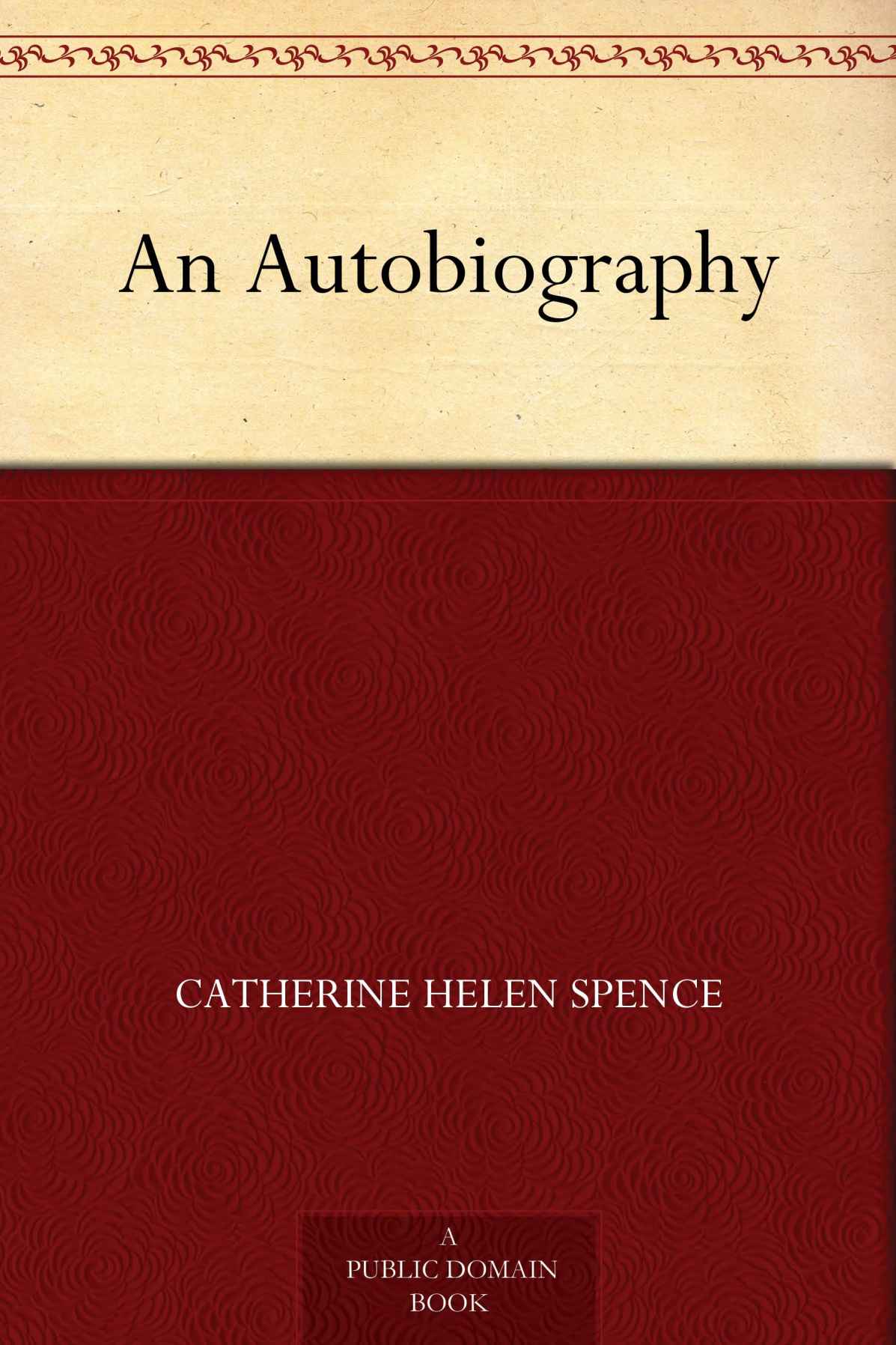Download An Autobiography - Catherine Helen Spence PDF Free - Full Version
Download An Autobiography - Catherine Helen Spence by Catherine Helen Spence in PDF format completely FREE. No registration required, no payment needed. Get instant access to this valuable resource on PDFdrive.to!
About An Autobiography - Catherine Helen Spence
Catherine Helen Spence (1825-1910), writer, preacher, reformer and feminist, was born on 31 October 1825 near Melrose, Scotland, daughter of David Spence, lawyer and banker, and his wife Helen, née Brodie. In 1839 David's wheat speculations failed and Catherine could not further her education in Edinburgh. The family migrated to South Australia in the <em>Palmyra</em>, arriving in November. David was clerk to the first Adelaide Municipal Council in 1840-43.<p>In 1872 Spence helped Caroline Emily Clark to found the Boarding-Out Society, to board orphaned, destitute and reformed delinquent children in the homes of families, and visit them to check on their behaviour and treatment. She was an official of the society in 1872-86 and worked strenuously as a visitor. When the State Children's Council was established in 1886 she became a member, and was later a member of the Destitute Board.</p> <p>Most of her work for education was done with her pen. Spence supported the foundation of kindergartens and a government secondary school for girls. In 1877 she was appointed to the School Board for East Torrens, an ineffectual and short-lived body. Her book, <em>The Laws We Live Under</em> (1880), was the first social studies textbook used in Australian schools, and anticipated similar courses in the other colonies by twenty years.</p><p>R. Barr Smith gave financial backing for her campaign for proportional representation; it was supported by the nascent Labor Party and several small populist and socialist groups, and was launched with widespread public meetings in 1892-93</p><p>Spence joined the fight for female suffrage in 1891 and became a vice-president of the Women's Suffrage League of South Australia. After South Australian women were enfranchised in 1894, she supported campaigns in New South Wales and Victoria and spoke at meetings of the Woman's League, a body formed in Adelaide for the political education of women. She urged the establishment of a local organization affiliated with the International Council of Women. This work also won her acclaim; she had become a symbol of what Australian women could attempt. When she died on 3 April 1910 she was mourned as 'The Grand Old Woman of Australia'.</p>
Detailed Information
| Author: | Catherine Helen Spence |
|---|---|
| Publication Year: | 2011 |
| Pages: | 132 |
| Language: | other |
| File Size: | 0.3616 |
| Format: | |
| Price: | FREE |
Safe & Secure Download - No registration required
Why Choose PDFdrive for Your Free An Autobiography - Catherine Helen Spence Download?
- 100% Free: No hidden fees or subscriptions required for one book every day.
- No Registration: Immediate access is available without creating accounts for one book every day.
- Safe and Secure: Clean downloads without malware or viruses
- Multiple Formats: PDF, MOBI, Mpub,... optimized for all devices
- Educational Resource: Supporting knowledge sharing and learning
Frequently Asked Questions
Is it really free to download An Autobiography - Catherine Helen Spence PDF?
Yes, on https://PDFdrive.to you can download An Autobiography - Catherine Helen Spence by Catherine Helen Spence completely free. We don't require any payment, subscription, or registration to access this PDF file. For 3 books every day.
How can I read An Autobiography - Catherine Helen Spence on my mobile device?
After downloading An Autobiography - Catherine Helen Spence PDF, you can open it with any PDF reader app on your phone or tablet. We recommend using Adobe Acrobat Reader, Apple Books, or Google Play Books for the best reading experience.
Is this the full version of An Autobiography - Catherine Helen Spence?
Yes, this is the complete PDF version of An Autobiography - Catherine Helen Spence by Catherine Helen Spence. You will be able to read the entire content as in the printed version without missing any pages.
Is it legal to download An Autobiography - Catherine Helen Spence PDF for free?
https://PDFdrive.to provides links to free educational resources available online. We do not store any files on our servers. Please be aware of copyright laws in your country before downloading.
The materials shared are intended for research, educational, and personal use in accordance with fair use principles.

